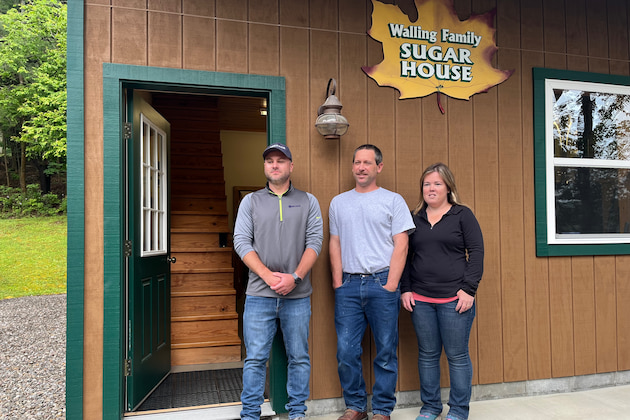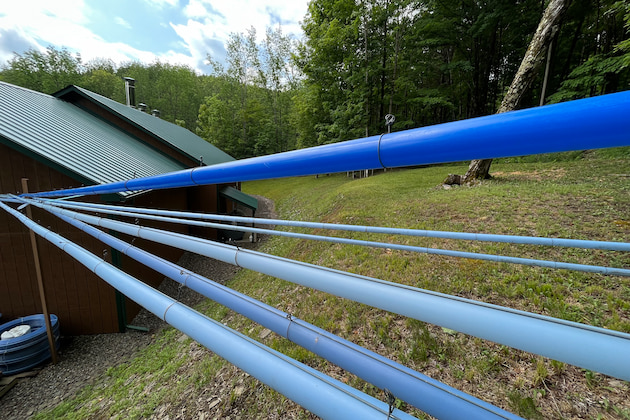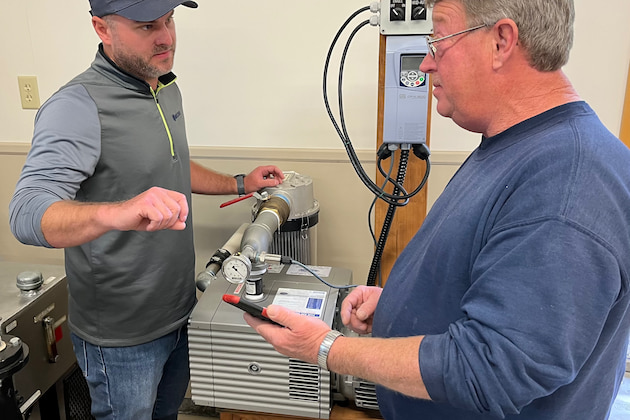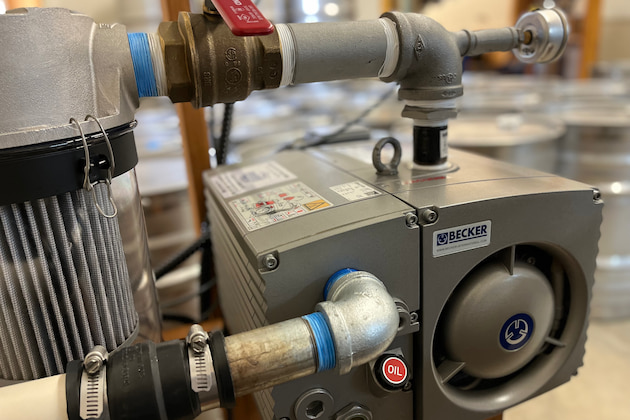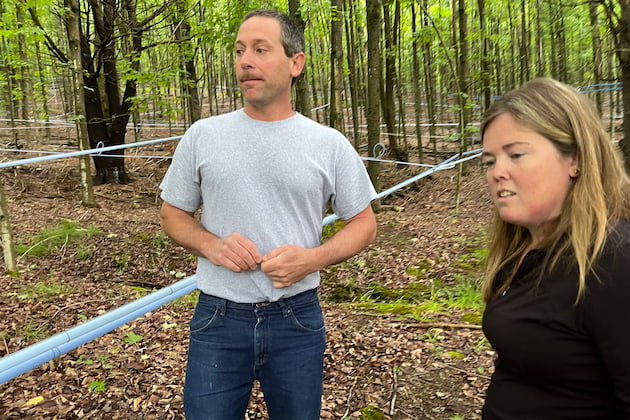Sugarmaker Profiles
Walling family share the secrets of their success
6lbs per tap this season
By PETER GREGG | SEPTEMBER 14, 2023
NORWICH, N.Y.—Neil and Tonya Walling of 8,900-tap Ripple Road Maple Products are reaching the pinnacle of success in sugaring.
“The more you put in the more you get out,” Neil said, during a tour for The Maple News.
The pair, along with Neil’s father Kern, have established themselves as masters of the craft.
They just came off a record breaking season this April.
“We harvested and processed 368,093 gallons of sap,” Walling said. “That equates to 40.9 gallons of sap per taphole. Each tap produced 6.5lbs of syrup.”
The pair made 5307 gallons. They boiled 44 times.
The secret of their success? That’s easy. Check leaks. Check leaks. Check leaks.
“Leaks are number one during the season,” Walling said. “I’ll go up in the woods at midnight to chase a leak.”
Nightime can be busy at their farm, located deep in the Catskills near Norwich, N.Y.
“We have a passion about it,” Tonya said.
The couple will often put on headlamps and drill taps from midnight to 8 a.m.
Keeping tight vacuum ensures more sap. It’s not rocket science. It’s just hard work.
Walling said the second most important thing is to make sure there are no sags in the mainline and that the saddles are tight.
A rule that is just a slight variation of the first rule. Again, maintain high vacuum at all times during the season, 24/7.
His third rule: Make sure equipment is tested and working properly. And have backups on hand, ready to go.
The Wallings established themselves years ago as “early tappers” before it became fashionable in maple to tap in January. Now they tap in December.
And they keep the vacuum on morning, noon and night for the entire season, with shut offs only during below-zero freezes.
During the tour for the Maple News, the Wallings had invited their new vacuum pump supplier, Becker Pumps of Cuyahoga Falls, Ohio.
Becker has gradually become more and more popular in the maple industry, with many professional sugarmakers turning to their equipment.
On this day, Becker was installing two new VFD-drive 70 c.f.m. pumps that would be hooked up to a 5,900-tap section of the Walling woods.
The pump uses less than 25 percent of the energy of Walling’s previous pump and vacuum levels are higher which means more production.
“This pump can hold up to 29 inches of vacuum and safely operate for a full season,” said Michael Ruff, Technical Support Manager for Becker, who seems to be as obsessed with high vacuum as Walling is.
“Service is the number one thing with our company,” Ruff said. “We’ve learned that in maple, it is vitally important to be available. And we are. Day and night.”
Walling agreed.
“A couple years ago, we purchased a new Becker vacuum pump and have been extremely happy with not only the performance of the pump, but the service of the company,” he said.
The Wallings will spend a good chunk of the remainder of the summer and into the fall getting ready for the 2024 season, which will likely begin in December again.
“We are working in our woods pretty much year round,” Walling said.
He just replaced more than 3000 drop lines, part of a policy of replacing 1/3 of his drops every year.
‘Neil hasn’t gotten out of the woods since we pulled taps in April,” Tonya said.
“We don’t just work three months of the year and that’s it,” Neil said. “It’s 100 percent all the time.”















